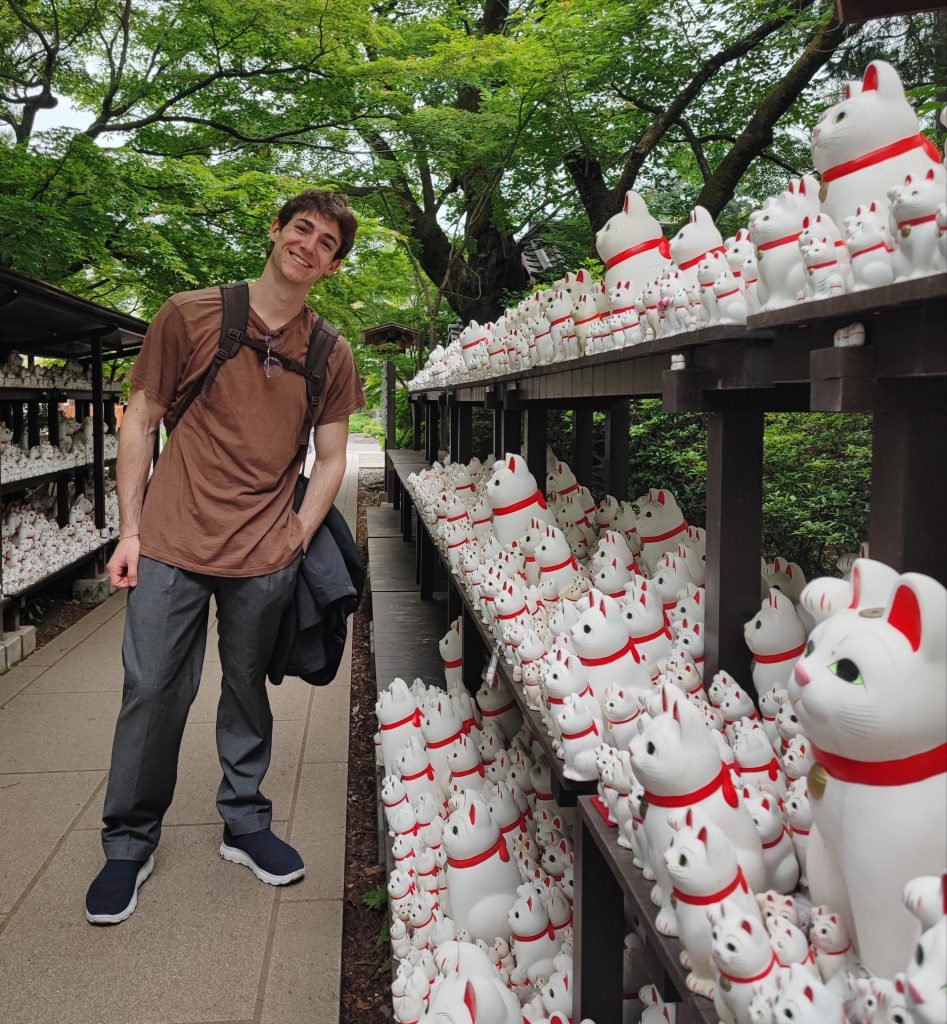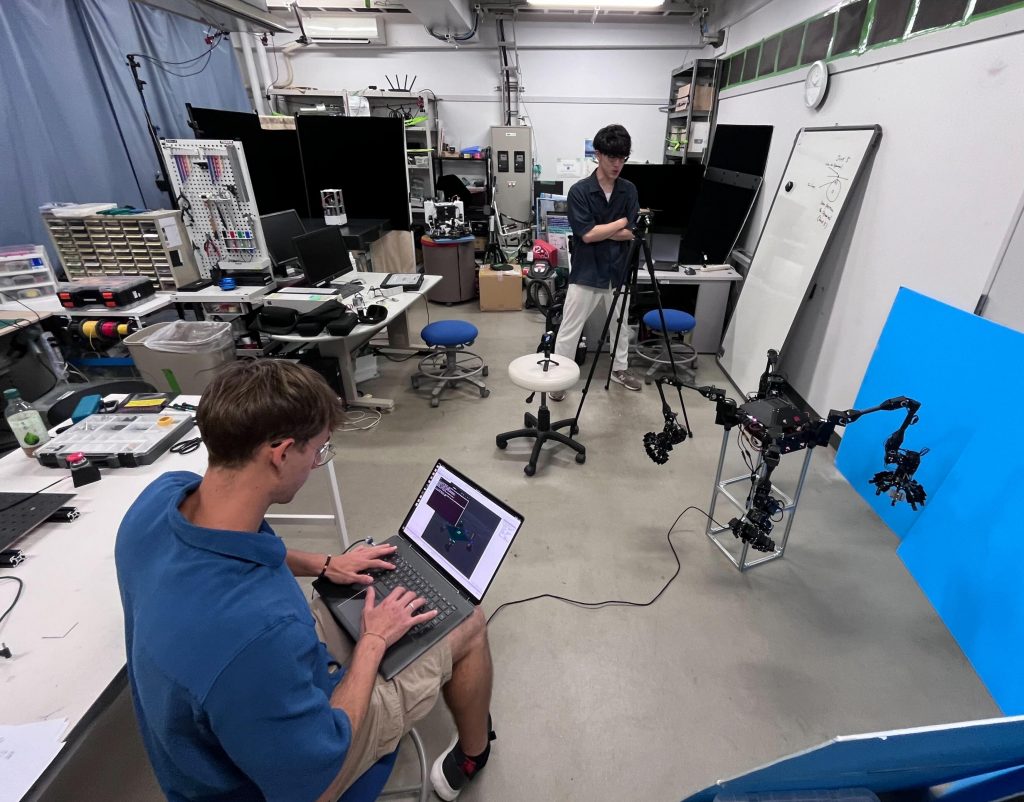Alessandro Puglisi – Tohoku Univeristy, Sendai, Japan
What differences did you observe between the teaching system of the host university and that of your home institution, particularly regarding technical courses such as control, automation, or robotics?
During my exchange period at Tohoku University, I attended a Laboratory Experiments course and a course in Control Theory. The former was very different from what I was used to: I had the opportunity to experiment with physics, mechanics, electronics, and control theory through a series of weekly experiments, collecting data and seeing theoretical formulas come to life. The Control Theory course was much simpler compared to what I was accustomed to at Politecnico (where courses are comprehensive, albeit sometimes demanding), but it was very interesting due to the weekly assignments, in which the topics covered in class had to be implemented using software tools such as MATLAB. The teaching approach is very different, but what struck me the most was the strong focus on laboratory research for Master’s students. In fact, Master’s students are required to join a laboratory, and from the very first year, courses constitute only a small part of their academic life, which is primarily carried out in the laboratory. I also had the opportunity to be part of a laboratory during my five-month stay (the Space Robotics Laboratory), where I honed and tested my skills in the field of robotics. The work I carried out there actually became the subject of my Master’s thesis.


How did your mobility experience contribute to expanding your technical and/or practical skills in the field of automation and control? Did you have access to laboratories, projects, or particularly relevant technologies?
My exchange program was research-oriented, as I was a member of a large space robotics laboratory at the university (with more than 100 members divided into various teams). Due to the nature of the exchange agreement, I spent many hours in the laboratory, implementing and testing algorithms for an innovative prototype for space exploration robotics. In the initial stages, I worked on software, learning and using fundamental tools for anyone wishing to pursue a career in robotics. Finally, I was able to test what I had observed for hours on a screen on a real robot; seeing it move as I had programmed was truly exciting. This experience was fundamental for my technical training, allowing me to put into practice the theoretical concepts acquired in several bachelor’s and master’s courses at the Politecnico. My CV and skills grew tremendously, which had a significant impact during the interviews I attended after graduation.
Did you have the opportunity to work on international projects, in multicultural teams, or with professors/researchers of other nationalities? If so, what did you learn from these interactions, also in terms of soft skills?
During the development of my research project with the Space Robotics Lab, I was surrounded by people from all over the world. The professor leading the laboratory and many colleagues were, of course, Japanese, but my academic supervisor was of Indian origin, while my “lab mates” came from Germany, Singapore, and the United States… and the list could go on. Other teams collaborated with research institutes from other parts of the world (such as the Italian IIT), through weekly online meetings to exchange ideas and new findings. Almost every week, I had to participate in and present updates during meetings with my team (the “Rover Team”) and others involving all members of the laboratory (composed of 6 teams). This was sometimes challenging, but also extremely stimulating, and allowed me to improve my preparation and presentation skills, as well as my ability to coordinate within large research groups. Moreover, at the end of the exchange, all international students were required to present the results of their research in a real scientific conference.
From a personal perspective, what were the main challenges you faced during your period abroad and how do you think they affected your academic and personal growth?
Cultural and linguistic differences can be a major obstacle at first, especially when deciding to go to places that are very far from the European lifestyle. Initially, I was also concerned by how isolated my future city, Sendai, seemed to me (you are probably looking it up online now, since it is not very well known outside Japan). Furthermore, the possibility of encountering a completely different educational system was also on my list of “are we sure about this?”. All these fears turned into opportunities for growth, both as a person and as a student. The distance of Sendai from Japan’s huge metropolises allowed me to experience the country more intimately, and over time I felt part of that culture. The differences in the type of lessons and exams enabled me to adopt a different approach to studying, more oriented toward practice and the search for supplementary study materials. This taught me to make the best use of available resources and to apply what I was studying through practical examples.
Would you recommend this experience to other students of Automation and Control Engineering? What aspects do you think are most relevant to consider before undertaking an international mobility program?
This experience opened up many opportunities for me and showed me the beauty of what we study, sometimes without really understanding why. I believe that embarking on a journey to a place as distant as Japan can be daunting, but courage will be rewarded in many ways. If I had to go back, I would choose this exchange again without any doubt, and I could not be more convinced in recommending it. However, it is important to note that the exchange program should be carefully considered when choosing the destination. In my case, I was more like a real university researcher than a student, which is why leaving in the last semester of my Master’s was important. The knowledge I brought with me was essential to make the most of the opportunities offered by the partner university. For this reason, I believe that one should choose their destination with full awareness of the exchange program and the university’s areas of expertise, but also of one’s own passions and interests. I have always been passionate about robotics, and fascinated by Japanese culture for many years, so I truly lived a dream.